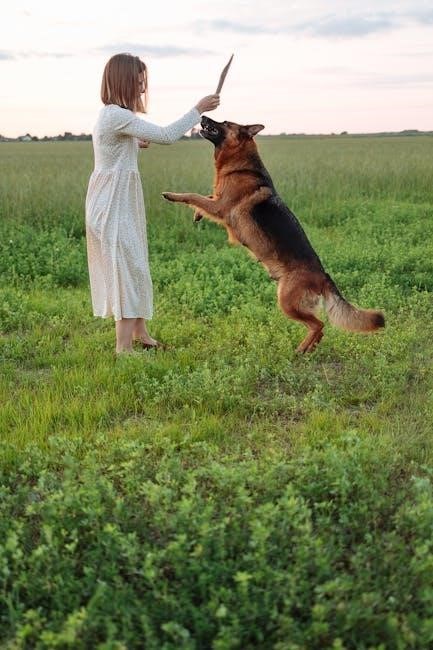The American Mountain Guides Association offers certification for guides, with
various levels
of certification available, including Rock Guide and Ski Guide, to ensure high standards of guiding in the US, using specific
criteria
․
Overview of the Certification Process
The certification process involves several steps, including application, training, and examination․ The American Mountain Guides Association has a detailed process in place to ensure that guides meet the required standards․ This process includes a review of the applicant’s experience and qualifications, as well as a skills assessment․ The association also requires guides to complete a movement video as part of the application process, which is used to evaluate their technical skills․ The certification process is designed to be rigorous and comprehensive, with the goal of producing highly skilled and competent guides․ The process typically begins with an application, followed by a training course, and finally an examination to assess the guide’s skills and knowledge․ The association’s website provides detailed information on the certification process, including requirements and timelines; The process is ongoing, with guides required to complete continuing education and professional development to maintain their certification․

Requirements for Certification
Certification requires a strong technical background and
relevant
experience, with specific
prerequisites
and training, using certain
criteria
to ensure high standards of guiding in the US, with various
levels
․
Technical Skills and Experience
To become certified, guides must possess a range of technical skills and experience, including proficiency in rock climbing, skiing, and other outdoor activities․ The American Mountain Guides Association requires guides to have a strong foundation in these areas, as well as experience working with clients and managing risk․ Guides must also demonstrate excellent decision-making and problem-solving skills, as well as the ability to communicate effectively with clients and other guides․ Additionally, guides must have a strong understanding of the natural environment and the ability to navigate and assess terrain․ The association also requires guides to have a certain level of physical fitness and endurance, as well as the ability to work well under pressure․ Overall, the technical skills and experience required for certification are designed to ensure that guides have the knowledge and abilities necessary to provide safe and effective guidance to clients․ Guides must meet specific criteria to be certified․

Courses and Exams
The American Mountain Guides Association offers various
courses and exams
to certify guides in different disciplines, with a focus on safety and technical skills, using specific evaluation methods and criteria always․
Rock Guide Course and Certification
The Rock Guide Course is a comprehensive program designed to train and certify rock guides, with a focus on technical skills and safety protocols․ The course covers a range of topics, including rock climbing techniques, anchor placement, and rescue methods․ To become a certified Rock Guide, candidates must complete the 10-day Rock Guide Course and pass a certification exam․ The course is designed to be challenging and intensive, with a focus on hands-on training and real-world scenarios․ The certification process is rigorous and ensures that guides have the necessary skills and knowledge to lead clients safely and effectively․ The Rock Guide Course is just one part of the certification process, which also includes a written exam and a practical assessment․ By completing the course and certification process, guides can demonstrate their competence and commitment to safety, and gain the recognition and respect of their peers and clients․ The course is led by experienced instructors who are certified by the American Mountain Guides Association․

International Federation of Mountain Guides Association
The IFMGA provides certification for mountain guides worldwide, with
standards
and training programs, ensuring high levels of competence and safety in mountain guiding, using specific
criteria
and guidelines always․
Comparison with European Certification
The American Mountain Guides Association certification differs from European certification, which is provided by the International Federation of Mountain Guides Association․ The IFMGA offers a more comprehensive certification program, covering all aspects of mountain guiding, including rock, alpine, and ski guiding․ In contrast, the AMGA focuses on technical guiding skills, such as multi-pitch rock climbing and ski guiding․ The European certification process is also more standardized, with a unified set of standards and requirements across all member countries․ The AMGA, on the other hand, has its own set of standards and requirements, which may differ from those of the IFMGA․ Despite these differences, both certifications are highly respected and recognized within the mountain guiding community․ The comparison between the two certifications can provide valuable insights into the different approaches to mountain guiding and the various standards and requirements that guides must meet․ Overall, the AMGA and IFMGA certifications share a common goal of ensuring high levels of competence and safety in mountain guiding․

Professional Development and Training
Guides participate in ongoing
education
and training to maintain certification and enhance skills, using various methods and resources, including internal CMS professional development training and other activities and programs available․
AMGA Certified Guides and Professional Development
AMGA certified guides are required to participate in ongoing professional development to maintain their certification, this includes attending workshops and seminars, as well as participating in online courses and training sessions․ The AMGA provides various resources and opportunities for certified guides to enhance their skills and knowledge, including internal CMS professional development training․ This training is designed to help guides stay up-to-date with the latest techniques and best practices in the industry․ By participating in professional development, AMGA certified guides can demonstrate their commitment to providing high-quality guiding services and staying current with industry developments․ The AMGA also offers a range of programs and activities to support the ongoing development of certified guides, including mentorship programs and peer review․ These programs help guides to continue to develop their skills and knowledge, and to share their expertise with others in the industry․







